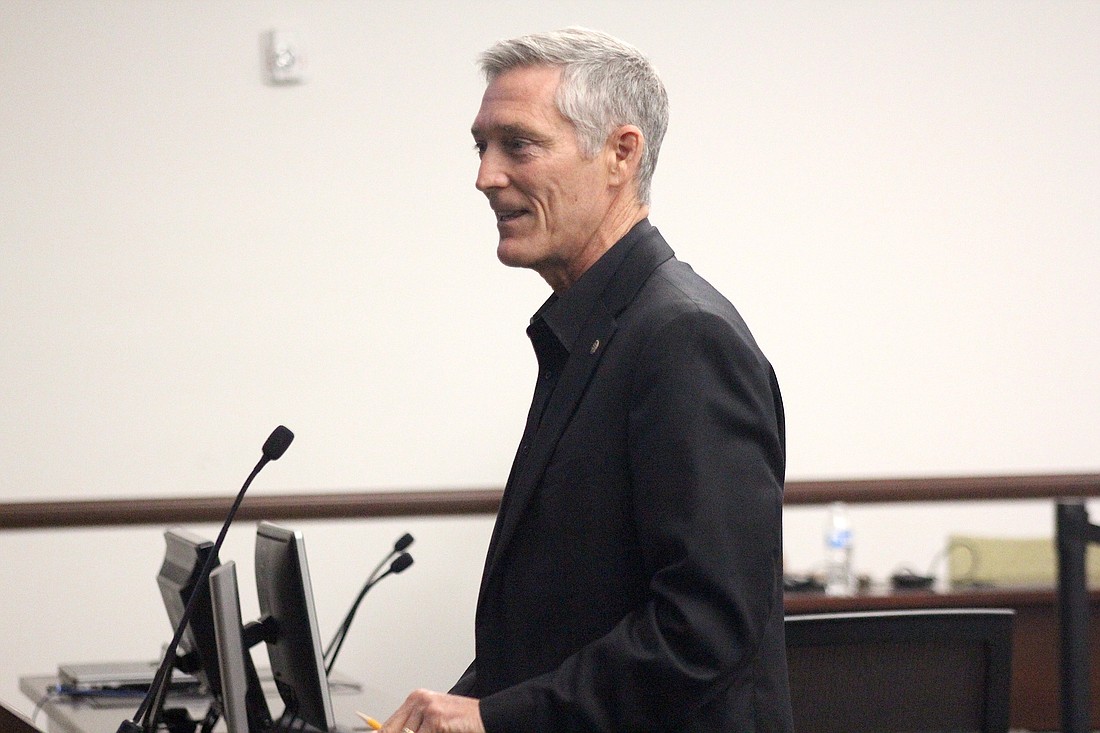- December 14, 2025

The city of Palm Coast’s taxable value is up 17% from last year, according to Property Appraiser Jay Gardner, the biggest annual increase in the city since 2006, when the increase was almost 40%. That means the city will need to decrease the tax rate in 2022 to reach the rollback rate and avoid a tax increase.
The total taxable value in the city last year was about $6.4 billion; Gardner estimated the value this year to be $7.5 billion. Most of the increase is attributable to increasing home values, but part is due to new construction: This year in the city, there is expected to be about $330 million in taxable value of new construction. That’s the most since 2007, when the new construction was $594 million.
In 2021, the city added just under 1,500 new buildings; by comparison, in 2005 almost 4,000 building were constructed in the city.
In other words, Mayor David Alfin said, when residents point out the quick pace of construction in the city, we can also look back at previous years’ data and realize, “We’ve been here before.”
Gardner pointed out that tax exemptions reduce the city’s total taxable revenue by 44%. Without any exemptions, the city’s taxable value would be $13.3 billion.
The homestead exemption alone reduces the city’s taxable value by 25%. More exemptions are being proposed at the state level, for first responders and school teachers.
“Of course I love all first responders, and teachers are saints for what they deal with, but every time we give somebody something, someone else pays for it,” Gardner said to the City Council. “If you guys lose money, you have to change your millage rate. If you raise your millage rate, [homesteaders] pay more.”
“Most people are scared to say anything out loud” against helping first responders and teachers, Gardner said, but if they are asked to pay less in property taxes, “it’s coming out of somebody’s wallet. If you’re not a person who’s getting that exemption, you’re paying for it. Period.”
The City Council is just now beginning its budget process, with presentations by the Public Works, Utility and Stormwater departments at the May 24 meeting.
The Public Works Department is dealing with rising fuel costs and labor shortages, which could be a concern for the upcoming budget, Director Matt Mancill told the City Council on May 24.
Diesel fuel costs for the city have gone up 84% compared with last year, and unleaded fuel is up 32%, Mancill said. Filters have gone up 75% in price, and shortages also threaten to put trucks out of commission.
“The filter doesn't sound too serious,” Mancill said. But if you don’t have one, “now you've got to take it down for two weeks because of an air filter. That's very disruptive to operations.”
The cost of tires is also up 17%.
“So what we've experienced over the past year has been remarkable, to say the least,” Mancill said.
Similarly, the Utilities Department is paying 10% to 70% more for water treatment chemicals than it used to. Wastewater pumping supplies are up 8% to 115%, depending on the part.
In addition to the supplies, the department is strained due to staffing shortages.
“Staff turnover at the entry and mid-field level and plant operator positions have become a serious problem for work production rates,” according to the presentation. There are several open positions in the department.
"Recruiting has become more and more challenging," Pete Roussell, deputy utility director, said.
PEP tank installations for the city are projected to be 922 in 2022, up from 272 in 2018, due to increased home construction.
The city's Stormwater and Engineering Department is struggling with increased costs as well. The Construction Cost Index is up 8.5%, and the Building Cost Index is up 15.3% compared to last year. The department is expected to issue 14,515 permits this year, up from 5,328 in 2018, due to increased new homes, driveway replacements, and right of way matters.
The cost of concrete is up 17%; the cost of metal drainage pipes is up 122%; the cost 36-inch plastic drainage pipes is up 62%.
Meanwhile, stormwater staffing is experiencing high turnover, due to low salaries when compared with the private sector, according to Director Carl Cote.
"The vast majority of our staff leaves on very good terms, but they have better opportunities somewhere else," Don Schrager, stormwater operations manager, said.
Also at the meeting ...
Palm Coast was once the most beautiful city she’d ever seen, Cathy Heighter told the City Council on May 24, but 17 years later, “I’m beginning to to feel that we are letting our city down.” She said the city needs to address the “debris” that is left in front of people’s houses; she no longer feels comfortable calling code enforcement, since the state law now makes public the identities of those making complaints.
Heighter, who is also a candidate for City Council, also said her sister is a senior citizen and is struggling to make ends meet, due to rising housing costs. “I feel there is a need for something to be done for senior citizens in our community,” Heighter said.